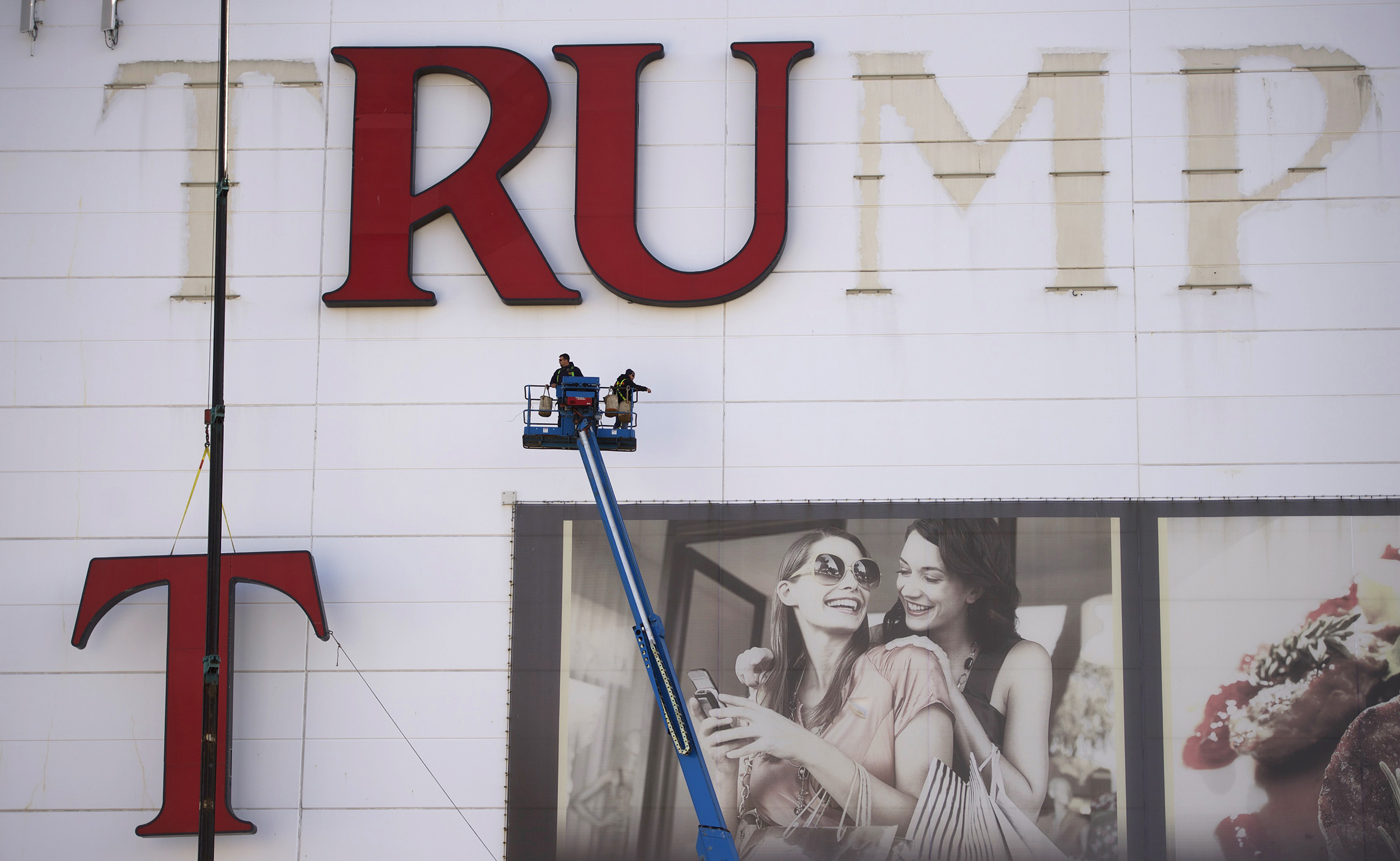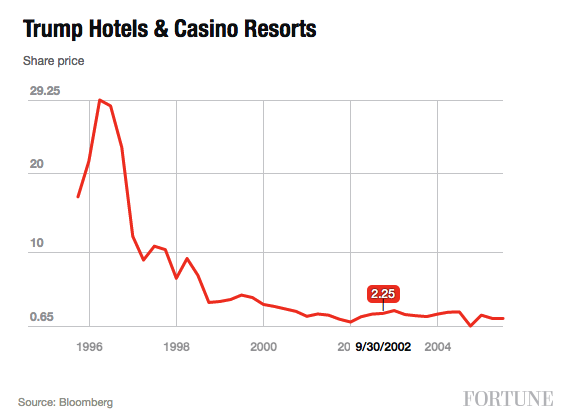Politics and the President’s wheeler-dealer background suggest the infrastructure plan is a mirage
If there’s been one shred of hope for bi-partisan progress in this politically polarized time, its been the idea that somehow the “populist” Trump Administration and congressional democrats and republicans might somehow see eye-to-eye on the subject of good, old-fashioned public works pork, what now goes by the term infrastructure. Trump endorsed big plans to beef up infrastructure spending in his campaign, and most democrats and not a few republicans would relish dispensing billions in federal funds for pet projects in their states or districts.
Given Donald Trump’s history–from steaks, to private colleges, to casinos–is it any surprise that his infrastructure “plan” is primarily a vehicle for personal self-promotion financed with “OPM” (other people’s money) that, if it goes ahead at all, will be a financial and economic failure?
It’s actually so unremarkable, that we really shouldn’t waste too much time thinking about it. But just to clarify that we’re not being flippant, have a look at what the experts are saying:
The normally staid Brookings Institution published Adie Tomer’s take: “too much cynicism, too little leadership.” In their view, the plan effectively asks state’s and cities to come up with the money, while the administration takes credit for the spending.
At CityLab, Laura Bliss is plaintively asking people to stop calling it a $1.5 trillion infrastructure plan (given than $1.3 billion has to come from somewhere other than the federal government).
And as Henry Grabar reports at Slate, one estimate is that there are $281 billion in cuts to existing infrastructure programs, (including a $170 million reduction in revenue for the Highway Trust Fund) so that the Trump budget actually constitutes a net reduction in federal support for infrastructure investment.
The American Prospect thinks it’s either fictional, a scam, or both: “The plan’s not about building more. It’s about privatizing what’s already there.”
Transportation for America points out, that despite all the rhetoric about deteriorating roadways, the plan doesn’t prioritize repairs, and many of its financial mechanisms (requiring private participation) essentially skew spending toward big capital projects (many of which would had been built anyway), to the neglect of maintenance.
Politico sees a highly politicized distribution of the spoils, with big reductions to programs that benefit blue states and provisions that sweeten the pot for red states.
Matt Yglesias argues persuasively that there’s little reason to believe that there’s any likely political support for an infrastructure bill. Not only is there not actually a Trump Administration when it comes to advancing major policy initiatives (the President effectively cedes these details to congressional leaders), there are actually pretty strong fiscal and political reasons why infrastructure is going nowhere. Let’s check back in a few months to see if his political forecast isn’t exactly correct:
Now Trump has a thing that he can say is his plan, congressional conservatives can propose paying for it with safety net cuts that Democrats won’t agree to, and Republicans can try to pass the whole thing off as an example of gridlock or obstruction rather than reflecting the fact that conservatives don’t favor spending more money on federal infrastructure.
No one with a passing familiarity with Trump’s business record should be surprised that the the administration’s Infrastructure plan, such as it is, is a combination of hot air, self-promotion, and other people’s money.
Trump’s name is taken off the Trump Plaza Casino in Atlantic City, New Jersey (2014).
Opaque, debt-fueled, and Trump-branded, lots of up front-bluster, but lackluster real-world returns, as stockholders in Trump Entertainment and Resorts can attest. Here’s how Fortune described its track record in March, 2016:
From mid-1995 to early 2009, Trump served as chairman of Trump Hotels and Casino Resorts (renamed Trump Entertainment Resorts in 2004), and held the CEO title for five years (mid-2000 to mid-2005). During Trump’s 13 years as chairman, the casino empire lost a total of $1.1 billion, twice declared bankruptcy, and wrote down or restructured $1.8 billion in debt. Over the same period, the company paid Trump—essentially Trump paying himself—roughly $82 million by Fortune’s estimates, collected from a dizzying variety of sources spelled out in the company’s proxy filings, as varied as payments for use of Trump’s private plane to fees paid directly Trump for access to his name and marketing expertise.
From his casinos, to his hotels, to his steaks, to his for-profit college, Trump ventures have always been about building the Trump brand and enriching Donald Trump, and have been fiascos for either investors or customers or both. There’s no reason to think Trumpfrastrcture will be any different.


